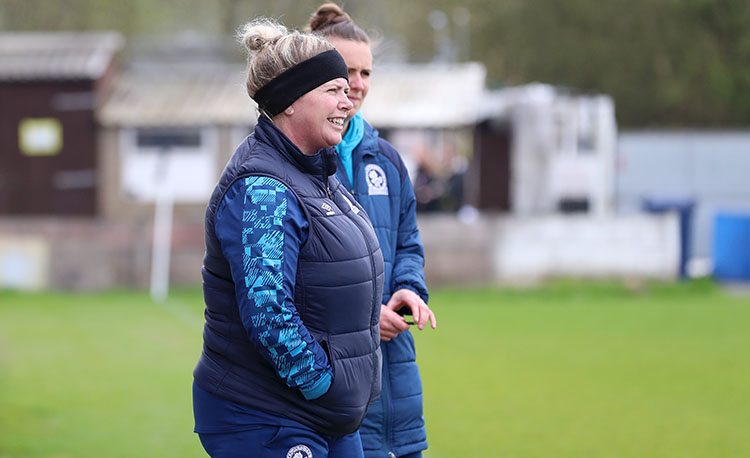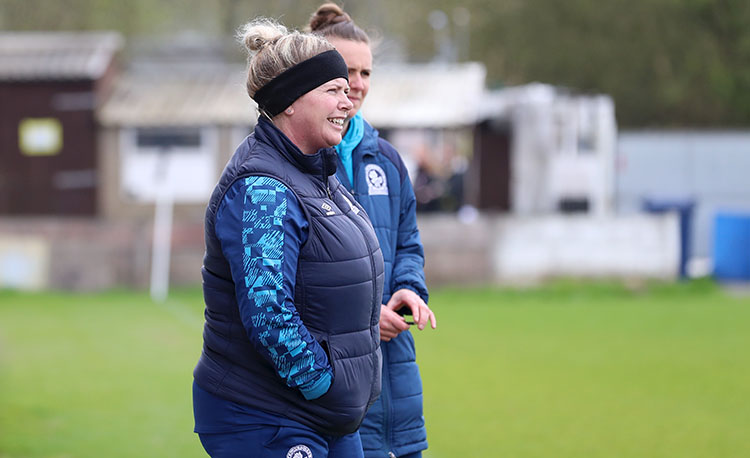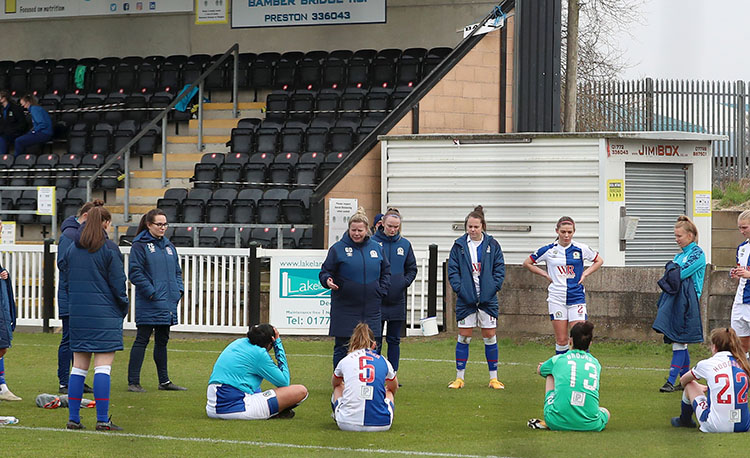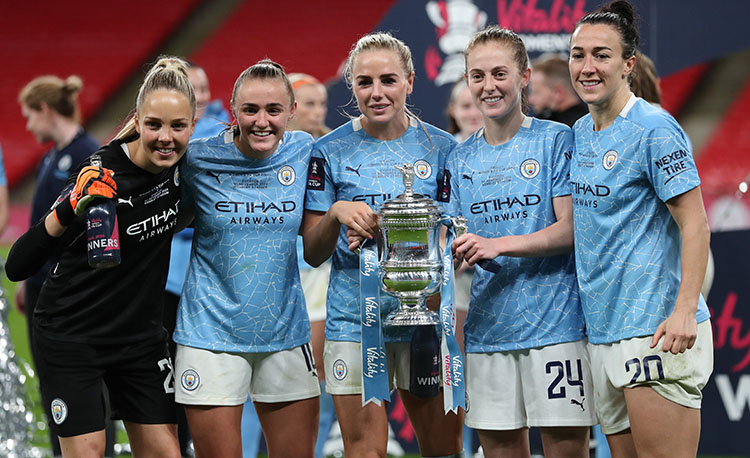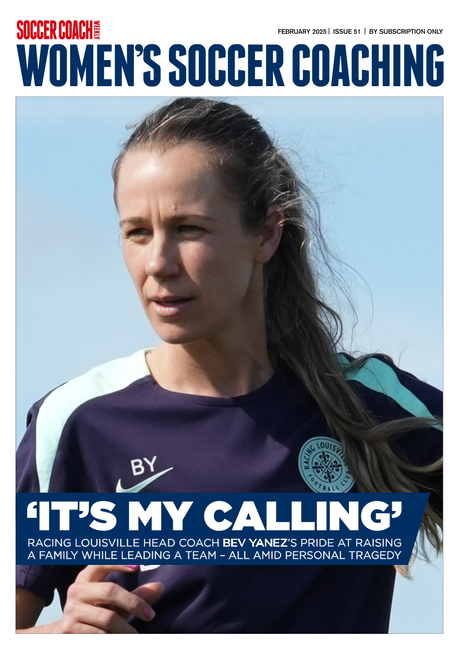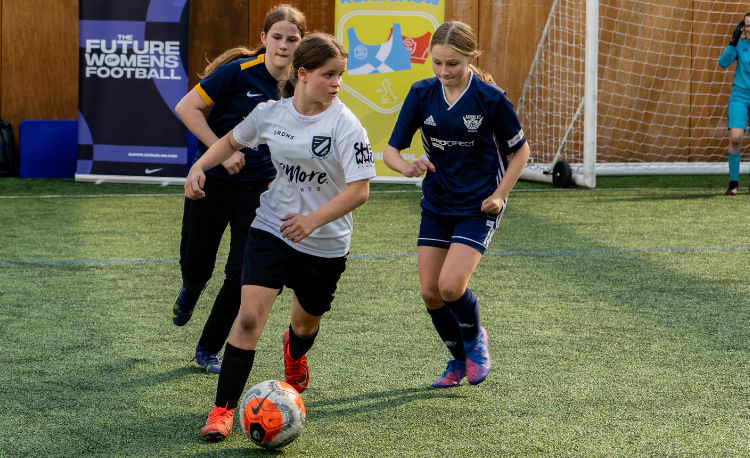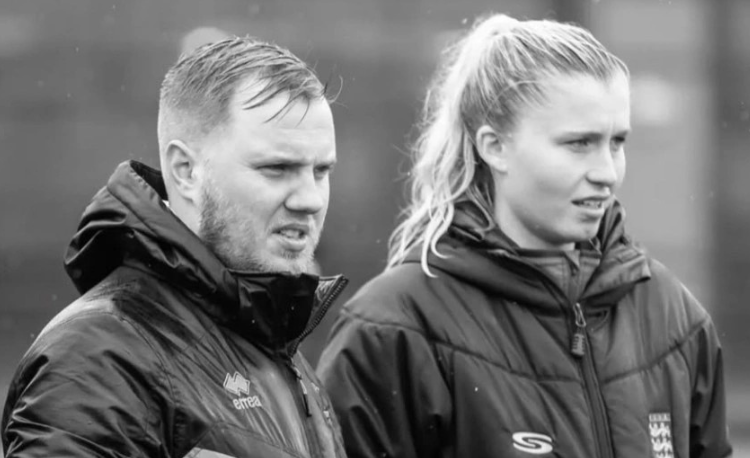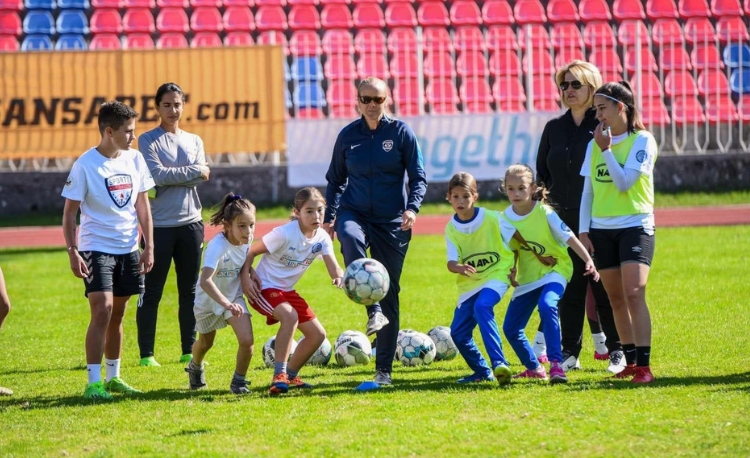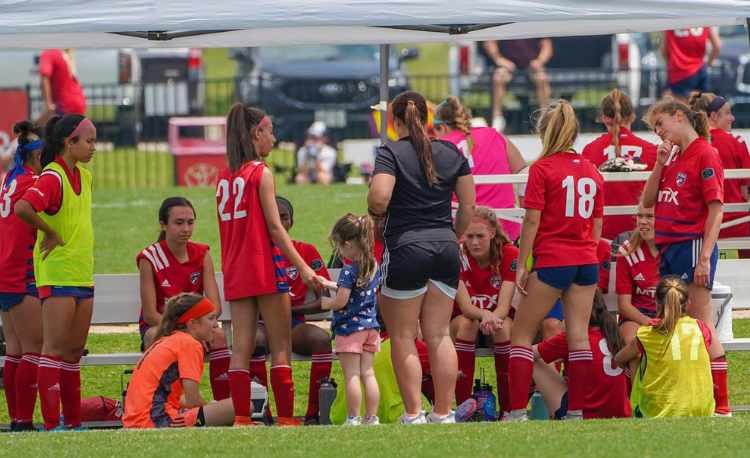You are viewing
1 of your 3 free articles
Patience pays off
Her Blackburn Rovers side were twice denied promotion before finally being admitted to the FA Women’s Championship. Boss GEMMA DONNELLY tells us how she kept her cool - and recalls a rollercoaster of a coaching story
Gemma Donnelly has been on one hell of a journey. And she knows precisely when it first turned in her favour.
It wasn’t in 2019, when the Blackburn Rovers team she leads were finally granted promotion to the FA Women’s Championship – the second tier of English football – after three successive seasons dominating the division below.
It wasn’t even in 2014, when her side narrowly avoided relegation to tier four on the final day of the season, and she vowed to staff “we are never going through that again”.
No, the “lightbulb moment”, as she refers to it, came in November 2013, after a low-key cup game against local opposition.
It was her second match in temporary charge of the team, after previous boss John Prince had stepped down.
As head of the women’s section, it was Donnelly’s job to find Prince’s replacement – but she did not consider herself as an option until a chance conversation with a former Rovers player who lined up for the opposition that day.
“She said, ‘I always thought you would take over the running of the team at some stage, why have you not?’,” Donnelly recalls.
“At the time, I kind of shrugged it off and just thought there’s no way I can lead the team, I’m not ready for that yet.
“But quite quickly, I thought, ‘I’m going to try and see where I go with it’. I went into the club and said I would like to manage the team [permanently].
“My boss asked if I had time to do it, and I said I’d make time because I wanted to see what I could do with the team.
“I had to drag myself back. And then I had to say to players: ‘Can we do it again?’...”
“And he said, ‘If you think you can do it, then we’ll support you’. Little did I know I would end up where I am now.”
Where she is now is heading up one of English football’s under-the-radar success stories.
Blackburn may have only been promoted once in Donnelly’s seven-and-a-half years as manager, but it’s not for the want of trying.
They won the FA Women’s National League North title three seasons in a row, but were twice denied promotion - the first time on the field, after losing a play-off final to Tottenham in 2017, and the second time off it, when their application for a license to join the Championship was refused in 2018.
“It was just so heartbreaking,” Donnelly admitted. “It was a really sad and difficult moment, because all of us - as a team, as a group, as a club - were just exhausted.
“I had to, first and foremost, drag myself back. And then I had to speak to all the players to say, ‘can we do it again?’.
“That was exhausting in terms of the energy it expelled, trying to recruit and regroup.
“Hands down, it was the worst moment of my journey so far. But I have never learned so much as I did in those times of adversity, in terms of player management and the revealing of character, picking staff up, and how I controlled my own emotions in order to energize everybody around me.”
Amid the disappointments, Donnelly kept her squad motivated and hungry to go again. Between 2016 and 2019, they continually knocked at the door, winning 58 of 66 league matches and scoring 242 goals.
In the summer of 2019, their patience and sustained success was rewarded when their application for promotion went through. They celebrated by beating Coventry United in what was essentially a ceremonial play-off, with both going up into the Championship.
“As a group we needed that and it made me and everybody else involved incredibly proud,” Donnelly said. “Not just the trophy but what it stood for in that we’d not been able to do it [get promoted] for two seasons.
“But we bounced back - it took some doing, but went again. What an incredible group of people, so resilient and strong, in order to be able to do that. You tell me a team anywhere that’s been able to do that.”
Donnelly has since safely steered Rovers through two seasons in the second-tier Championship. But recounting the mixed emotions of the last few years is just scratching the surface.
The Gemma Donnelly story is, in essence, the Blackburn Rovers story, and vice versa.
She first arrived at the club in 2004, almost a decade before landing the job of first-team manager.
Initially appointed as Women’s and Girls’ Development Officer, Donnelly went on to coach all age groups within Rovers’ youth set-up. At that stage, she held an FA Level 2 badge and did not complete her Uefa B until 2009.
“What an incredible group of people, so resilient, to bounce back like that.”
“I was probably delayed in my coaching journey throughout my whole career,” Donnelly said. “I was not really doing specifically high-end coaching, certainly not as I would call it now.
“We had a lot of coaches [at Blackburn] I could learn from, from all the different age groups. But, at that time, my own coaching development wasn’t high on my priority list - it was ensuring those around me were encouraged to be as good as they could be.
“I kind of sacrificed my own development in order to support and encourage them, and I was just so busy that I didn’t have time to embrace coaching courses.
“I was learning on the job, around coaches aspiring to be the best they could be, so that was, at the time, good enough for me.”
However, after taking on the first-team manager’s job - alongside her role as head of women’s and girls’ football - her priorities shifted.
And when the team became regular challengers at the top of the third tier, Donnelly had designs on getting her Uefa A license.
“We’d been really successful, and I was thinking I needed to get my A license because I’m working with great players and I need these credentials,” Donnelly said.
Related Files
‘ARTE ET LABORE’ - HOW BLACKBURN’S MOTTO INSPIRES DONNELLY
“The philosophy across the club is ‘by skill and hard work’ and it’s got to be consistently driven amongst everybody involved. You have to go above and beyond in order to want to make it.
“When the session starts at 7pm you don’t turn up at 7pm and go home at 9pm, you’re there at 6.30pm or 6pm. Delivering the session is just the icing on the cake, the tough bit is the layers underneath.
“It’s also important to me that I interview everybody that comes into the club. So myself and the technical director will sit down with every member of staff for every interview for any position, to ensure they are the right person for the club, that they’re there for the right reasons, and that they’re able to complement what we have in place.
“Once you’ve got the right people, it’s about the dynamics, that we’re all on a level playing field, and that we’re all able to tap into everybody’s knowledge and expertise.
“Once you instil that across a group of people, it empowers them and you can really drive that through to the players then.
“We don’t get it right all the time, far from it in fact. You don’t want to get it right all the time, because otherwise players and staff alike find it really difficult to deal with adversity.”
‘SEEING THESE PLAYERS ACHIEVE GREAT THINGS MAKES ME REALLY PROUD’: DONNELLY ON WALSH, STANWAY AND TOONE
“My proudest moments have been seeing players selected for England youth or having the opportunity to go and play at the highest level.
“There’s a whole load of players out there that we’ve supported and developed. Keira [Walsh, now at Manchester City] was our first big name.
“She went through our system from the age of 12 and played in our first team for a season, before she then went on to Man City. She has since captained England, and captained Man City a short time ago. I think that’s a fabulous testament to our program at Blackburn.
“Georgia [Stanway, also at Manchester City] followed, then Ella Toone. Toone was with Manchester United as a youngster, then she came over to us for a short period. She then went to Manchester City, and we took her on loan.
“Seeing these players achieve great things makes me really proud.”
“But while we were still in tier three, we didn’t have the bodies - I had a million and one things to do. I was just so busy trying to organize, push the girls through and pull everybody to the next level.
“I got a great team around me and we quickly found out the skillset we all had. Mine wasn’t so much in the coaching area - mine was in the organizing, the paperwork, the admin, the pulling in of players, the negotiating, they were my areas of expertise.
“I had great coaches, who just wanted to coach and were really excellent at that. So, again, I probably sacrificed myself in order to get us to where we’re at.
“I’m still doing my A license – I’m very close to achieving it, but the pandemic delayed it. My ambition was to get it by the back end of last year, that didn’t happen, obviously.”
Time is still very much on Donnelly’s side, of course, and her enthusiasm for the job remains evident, seven-and-a-half years into her reign.
Such is Donnelly’s reputation for youth development, Blackburn is considered a finishing school for talented youngsters at nearby Women’s Super League clubs, like Manchester United, Manchester City and Everton.
“We absolutely want to be in the Women’s Super League and playing at the top.”
The bulk of the first-team squad is made up of players who have been on the books of those clubs as youngsters, while Rovers ended the season with Elise Hughes, 20, and Hannah Coan, 19, on loan from Everton, and 17-year-old Maria Edwards - who was on the front cover of April’s Women’s Soccer Coaching - on loan from Manchester United.
“I think it’s important that we understand as a football club where we’re at,” Donnelly said.
“We’re not a Manchester United or Manchester City. That doesn’t mean we’re not aspiring to be those clubs. We absolutely want to be in the Super League and playing at the top, but we’re not there yet.
“So we can’t compete with those football clubs but we can work with them and support players that perhaps aren’t ready for their level but might be ready for Championship level.
“Maria Edwards and Elise Hughes are great examples of that. I don’t know the destiny of those two players, but I do know we can support them in their journey, by offering them game time at Championship level.”
What the future holds for Blackburn themselves remains to be seen. They have survived twice in the Championship, relatively comfortably, but they are not a club to run before they can walk.
And, while the ambition is commendable, any bid to reach the Women’s Super League will be a longer term project. But, as she has shown with her 17 years at the club, Donnelly is very much in it for the long haul.
“I said to my staff: ‘We are never going through that again!’...”
Newsletter Sign Up
Newsletter Sign Up
Discover the simple way to become a more effective, more successful soccer coach
In a recent survey 89% of subscribers said Women's Soccer Coaching makes them more confident, 91% said Women's Soccer Coaching makes them a more effective coach and 93% said Women's Soccer Coaching makes them more inspired.
*includes 3 coaching manuals
Get Inspired
All the latest techniques and approaches
Women's Soccer Coaching offers proven and easy to use soccer drills, coaching sessions, practice plans, small-sided games, warm-ups, training tips and advice.
We've been at the cutting edge of soccer coaching since we launched Soccer Coach Weekly in 2007, creating resources for the grassroots youth coach, following best practice from around the world and insights from the professional game.
